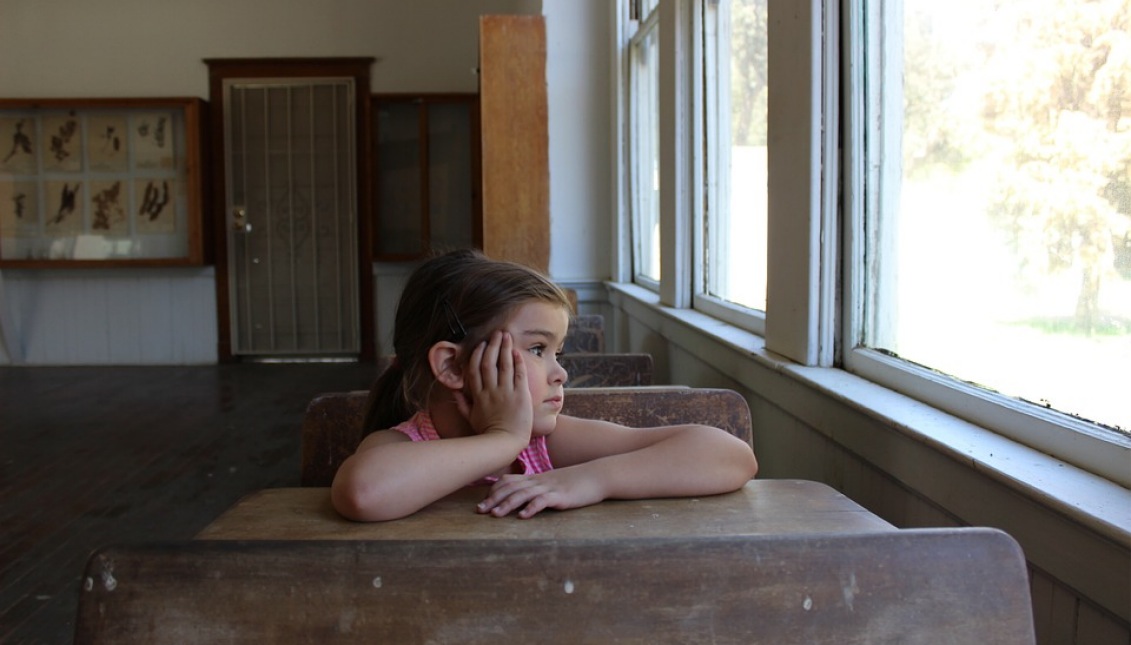
[OP-ED]: Our Education, Born from Swamps
MORE IN THIS SECTION
I volunteered once at a youth violence prevention center. It was marketed by my then current job as a groundbreaking opportunity to make a difference in a child’s life who needed it. For the most part during the event I stood behind a long table pouring tomato soup into bowls. The kids, on their way to being young adults, didn’t seem to have any interest in hearing my ideas of what they could do to better their lives, or what books they should read that would change their perspectives. They just wanted to eat. They had no interest in me being a savior.
So I then resigned myself to finishing up my turn as a server, and trying some of the tomato soup myself. It was more like watered down marinara in hindsight. The cafeteria room was large and crowded, I remember seeing so many kids and not many parents. The children were there for after school programs, and activities. All of them taking part in the “prevention process” on their own, and if youth prevention meant keeping them off the streets for a few more hours by playing chess, then I was all for it.
After pouring a bowl for myself, I assessed the seating arrangements. I spotted a small boy seated alone with only an ipad to keep him company. This seemed like a good seat, I thought. I could enjoy (try) my soup and he could continue to be dazzled by his ipad; both of us unbothered.
So I sat adjacent to him, he took no notice. He wore glasses that made his eyes appear larger; his blue polo shirt was wrinkled and maybe too big for his wiry frame.
I peeked at the screen and noticed he was watching episodes of the Frozen Planet documentary series, interesting, so I decided to pry a conversation from the isolated boy.
Recalling my opening, I didn’t lead off with the most charming introduction, “you like penguins?” I asked
I’d like to think he didn’t hear me initially rather than choosing to ignore me, either way he was silent.
Still I persisted, “looks cold out there, doesn’t it?”
Still he chose to listen to Alec Baldwin’s narration as oppose to me.
Starting to question my charm, I said to him while leaning in closer, “David Attenborough did a better job.”
At this, he stopped blinking and slowly raised his head to stare at me with his large brown eyes. His nose was running, causing his upper lip to shine. “Who?” He asked.
Realizing my ploy at getting the boy to speak had failed, I said, “never mind.”
He blinked once and continued with his documentary, and I continued on with my soup before getting up to take my leave.
Before I could grab my tray from the table however, the boy blurted out one sentence:
“Did you know rice is a swamp plant?”
Taken aback, I can remember not knowing how to reply. So I followed with, “no I didn’t, thank you for that.”
Finally the event was over, and I walked away feeling no more fulfilled, and much more hungry. But I did know that rice was a swamp plant.
So I sat adjacent to him, he took no notice. He wore glasses that made his eyes appear larger; his blue polo shirt was wrinkled and maybe too big for his wiry frame.

It could have been the state of the youth center, its programs, or its teachers (volunteers, really), but my experience that day stayed with me. I couldn’t quite grasp how a center built to prevent violence was so poorly funded, and how the kids who walked through its doors were so hungry. Yet this was the circumstance, and here was this boy, maybe full of random facts and knowledge, looking for his soul to be fed just as much as his stomach.
Sometime after, I checked with a professor at my college who was also a trained chef, and with a little Google search sprinkled in, “is rice a swamp plant?”
The answer is technically no, but it could be. Rice, just like wheat or barley, is a genus of grass or “Gramineae”, which is a grain. However, due to its structure, certain species like wild rice can actually flourish in swampy conditions. This is most often the tactic utilized in certain parts of Asia.
The truth is that in general, people are resilient. Placed in any condition, due to our makeup and ability to adapt, we can for the most part survive in the worst conditions, or even thrive in a foreign place.
The term survival can apply to many things. We typically see the term used as a means to defy death. But surviving can also mean telling your children that in America they speak English. Survival can mean fighting for a place at the table. It can mean having your children attend an after school program where they can eat soup, grilled cheese sandwiches, and cold pizza. Where they can hangout with friends and not worry about being robbed on their way home. It’s not harsh, it’s the truth. Sometimes those of us that know of the issues rather not speak of them, this doesn’t change the fact that just like those swamp plants, these children grow in less than favorable conditions. We would like to think that just as the rose grew from concrete, or the plant that grew from swamps, students attending schools in low income neighborhoods would flourish, this is unfortunately not the case.
According to a study published by the Handbook of Early Literacy Research,
Not only is that number staggering, it is heartbreaking as well. What this massive divide creates is a severe lack of exposure. Couple these students not having exposure to books, with exhausted single parents working multiple jobs, and poverty, we begin to see elements of the greater issues surfacing. It’s hard for a child to succeed when the sound of his or her stomach growling is louder than the sound of a teacher’s voice.
RELATED CONTENT
We would like to think that just as the rose grew from concrete, or the plant that grew from swamps, students attending schools in low income neighborhoods would flourish, this is unfortunately not the case.
An early Child Care and Education studied published by Betty Hart and Todd Risley highlighted that children from “professional” families would hear roughly 30 million more words by age 3 than children from “welfare” families. We continue to see a trend in early childhood development being heavily influenced on exposure, and what that child’s relationship with education becomes. In a household not readily focused on education, or equipped with two parents, we can see how cause and effect can lead a child down the path of missed opportunities.
Still, reading scores have not improved in decades with 83% of low-income 4th graders scoring at “Below Proficient" levels vs. 55% of middle-income students. A lack of exposure to more vocabulary often indicates future reading proficiencies.
Pertaining specifically to Latino students, most of them come from households in which English is not, and never will be the first language spoken. How many young Latino children have had to be the designated translator when their parents communicate with others outside of the family? How does this play out during parent teacher conferences? Should the message of “ your student needs to read more” be translated from teacher to student to parent? These students are defined as English Language Learners, or students that learned English as a second language. While this may not be a direct indicator of student achievement, two-thirds of ELL students come from low-income families and nearly half of ELLs in grades pre-K to 5 have parents who did not graduate from high school.
Many Latino millennials are even the first in their family to graduate from college, that includes me. Something as progressive and heavy is not something lost on the Latino millennial. Our Abuelas still brag to their friends, our Mothers still believing we have unlimited potential; all because we were born from swamps, knee deep in the waters of systematic and economic oppression.
Many Latinos who have been the product of their parent’s manual labor now get to live a life separate from their parent’s struggles; and some would argue separate from that culture. It were as if struggle defined what it meant to be Latino, and if you can barely speak the language (Spanish), and you’ve obtained an education, you’re hardly looked at as one in the same.
That’s not to say that for the Latinos who were raised amongst poverty, they did not feel the brevity of its impact; we still go home to those neighborhoods, and we still get glorified for obtaining an education as if it should remain separate from the norm.
Our Abuelas still brag to their friends, our Mothers still believing we have unlimited potential; all because we were born from swamps, knee deep in the waters of systematic and economic oppression.
Before the 5th grade, I had already attended four different schools. Traditionally, students with this high rate of mobility and lack of stability, are more likely to experience lower achievement levels and are at a higher risk of dropping out. Worse still is when these students come from single parent households that are almost twice as likely to have low incomes when compared to all families with children.
The swamp plant thrives, yet children do not grow from swamps. They grow from the pages of books, from the words spoken by teachers who aren’t underpaid and aren’t overworked. These children thrive when given the same opportunities as every other student. Students just like myself who were raised in tough neighborhoods, often develop the conscious to maintain themselves in these environments, but some don’t. Disappointments are readily shrugged away, and we soak up knowledge from the oddest of places wherever we can find it; like cafeterias over tomato soup. We learn that our Frozen Planet is on thin ice, and that rice is indeed a swamp plant; and if we were to brave the same conditions, we too can grow.
Neuman, Susan B. and David K. Dickinson, ed. Handbook of Early Literacy Research, Volume 2. New York, NY: 2006
Hart, B. and Risley. T. (2003). The early catastrophe: The 30 million word gap by age 3. American Educator, 27(1), 4 – 9.
http://www.researchconnections.org/childcare/resources/4337
Annie E. Casey Foundation, Kids Count 2010
Hull, J. (2011, November). Starting out right: pre-k and kindergarten: full report. Retrieved May 9, 2017, from http://www.centerforpubliceducation.org/Main-Menu/Organizing-a-school/Starting-Out-Right-Pre-K-and-Kindergarten/Starting-Out-Right-Pre-K-and-Kindergarten-full-report.html
Hull, J. (2011, November). Starting out right: pre-k and kindergarten: full report. Retrieved May 9, 2017, from http://www.centerforpubliceducation.org/Main-Menu/Organizing-a-school/Starting-Out-Right-Pre-K-and-Kindergarten/Starting-Out-Right-Pre-K-and-Kindergarten-full-report.html
Carter, C. J. (2013, March 19). Why Aren’t Low-Income Students Succeeding in School? Retrieved May 9, 2017, from http://www.huffingtonpost.com/carol-j-carter/why-arent-low-income-stud_b_2909180.html







LEAVE A COMMENT:
Join the discussion! Leave a comment.